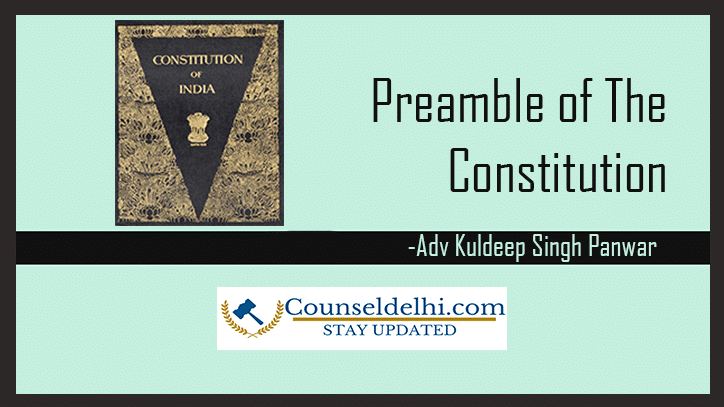One Hundred and Fourth Amendment of the Constitution of India
Introduction
The 104th Amendment of the Constitution of India, officially known as the Constitution (One Hundred and Fourth Amendment) Act, 2019, extends the deadline for the cessation for the reservation of seats for members from Scheduled Castes and Scheduled Tribes in the Lok Sabha and State Legislative Assemblies by a period of 10 years.
The reservation of seats for the Scheduled Castes and Scheduled Tribes was set to expire on the 26th of January, 2020 as mandated by the Ninety-Fifth Amendment but was extended for another 10 years with the given reason –
Although the Scheduled Castes and the Scheduled Tribes have made considerable progress in the last 70 years, the reasons which weighed with the Constituent Assembly in making provisions with regard to the aforesaid reservation of seats have not yet ceased to exist. Therefore, with a view to retaining the inclusive character as envisioned by the founding fathers of the Constitution, it is proposed to continue the reservation of seats for the Scheduled Castes and the Scheduled Tribes for another ten years i.e. up to 25th January 2030 -Ravi Shankar Prasad, Minister of Law and Justice.
The amendment does not, however, extend the period of reservation of the 2 Lok Sabha seats reserved for members of the Anglo-Indian Community and thus the practice of nominating two members of the Anglo-Indian community by the President of India under the recommendation of the Prime Minister of India was effectively abolished.
Short Brief
This bill extended the reservation of seats for SCs and STs in the Lok Sabha and states assemblies from Seventy years to Eighty years and removed the reserved seats for the Anglo-Indian community in the Lok Sabha and state assemblies.
Historical view
Since the time between 1952 and 2020, two seats were reserved in the Lok Sabha, the lower house of the Parliament of India, for members of the Anglo-Indian community. These two members were nominated by the President of India on the advice of the Government of India. In January 2020, the Anglo-Indian reserved seats in the Parliament and State Legislatures of India were discontinued by the 126th Constitutional Amendment Bill of 2019, when enacted as 104th Constitutional Amendment Act, 2019.
Discussion
Article 334 of the Indian Constitution gave reservation to the Anglo-Indian community during the creation of the Constitution, the article 334 also says that this reservation would cease to exist 10 years after the commencement of the Constitution. But this reservation was extended to 1970 through the 8th Amendment. The period of reservation was extended to 1980 through the 23rd amendment and then to 1990 through the 45th amendments, to 2006 through the 62nd amendment, to 2010 through the 79th amendment, and to 2020 through the 95th Amendment.
In January 2020, the Anglo-Indian reserved seats in the Parliament and State Legislatures of India were abolished by the 104th Constitutional Amendment Act, 2019. The reason cited by the Union Law Minister Ravi Shankar Prasad who introduced the Bill in the Lok Sabha is that the Anglo-Indians population in India was just 296 in the 2011 Census of India, though the number is disputed.
Legislative history
The Constitution (One Hundred and Twenty-Sixth Amendment) Bill, 2019 was introduced in the Lok Sabha on the 9th of December 2019 by Ravi Shankar Prasad, Minister of Law and Justice. The bill sought to amend Article 334 of the constitution.
The bill was unanimously passed by the Lok Sabha on the 10th of December 2019 with 355 votes in favour and 0 votes against. The bill was then tabled in the Rajya Sabha and was also passed unanimously on the 12th of December 2019 with 163 votes in favour and 0 votes against. The bill received assent from President Ram Nath Kovind on the 21st of January 2020 and was notified in The Gazette of India on the next day. The amendment came into effect on the 25th of January 2020.
Reference: Wikipedia.com





